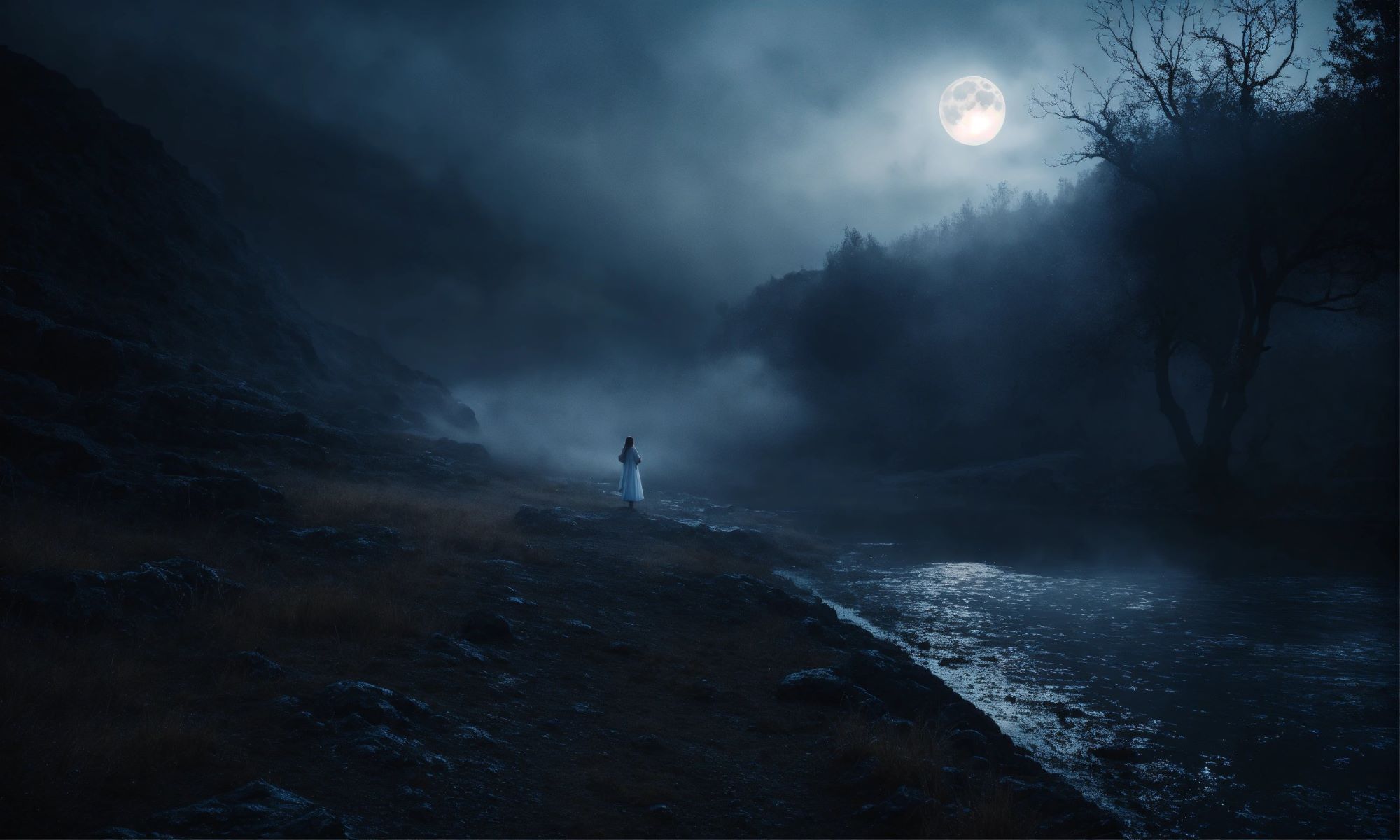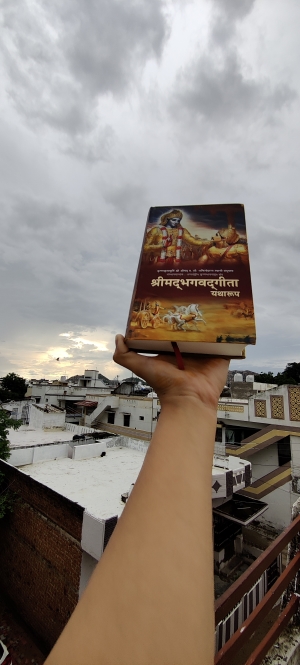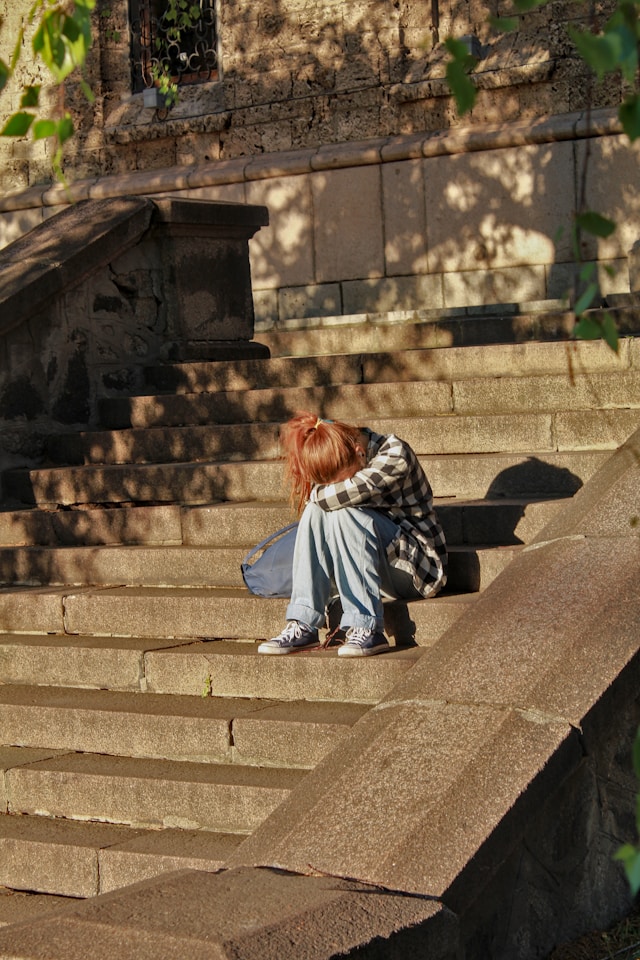The Universal Journey of Darkness: Exploring Depths of the Soul!

The concept of the “dark night of the soul” originates from the writings of the Spanish Christian mystic and poet Saint John of the Cross, particularly in his poem titled “Noche Oscura del Alma” (Dark Night of the Soul). In this work, Saint John of the Cross describes a stage in the journey of the soul toward union with God where the individual experiences profound spiritual desolation, feelings of abandonment, and a sense of being lost or disconnected from the divine.
The “dark night of the soul” is indeed a universal concept that transcends specific religious or philosophical boundaries. While Saint John of the Cross’s writings serve as a prominent reference point within Christian mysticism, similar experiences are found in various cultural, religious, and philosophical contexts.
Across traditions, individuals undergoing profound spiritual growth often encounter moments of existential crisis, inner turmoil, and a sense of spiritual desolation. These experiences can be seen as crucial stages in the journey toward deeper self-awareness, enlightenment, or union with the divine.
They challenge individuals to confront their beliefs, doubts, and fears, ultimately leading to greater spiritual insight, transformation, and a more authentic connection with the transcendent.
Navigating Inner Turmoil: Insights from the Bhagavad Gita, a Sanatan Scripture 📙
In the Bhagavad Gita, while the term “dark night of the soul” itself is not explicitly mentioned, there are themes and teachings that resonate with the experiences associated with it. The Bhagavad Gita addresses the inner struggles, doubts, and existential crises that individuals may face on their spiritual journey, offering guidance and wisdom to navigate through them.
For instance, Arjuna, the main protagonist of the Bhagavad Gita, experiences a profound inner conflict and moral dilemma on the battlefield of Kurukshetra. He is torn between his duty as a warrior and his reluctance to engage in battle against his own relatives and teachers. This crisis leads Arjuna to question the nature of reality, the purpose of life, and his own role in the universe.

Lord Krishna, who serves as Arjuna’s charioteer and spiritual guide, offers profound insights and teachings to help Arjuna overcome his doubts and inner turmoil.
Lord Krishna emphasizes the importance of fulfilling one’s duty (dharma) without attachment to the results, surrendering to the divine will, and cultivating inner equanimity through the practice of yoga.
Through the dialogue between Arjuna and Krishna, the Bhagavad Gita offers profound teachings on how to navigate through periods of intense inner turmoil and emerge with greater clarity, wisdom, and spiritual realization.
Navigating Inner Turmoil: Insights from the Bhagavad Gita, a Sanatan Scripture✍️
In the Bhagavad Gita, Lord Krishna provides profound guidance on how to navigate through moments of inner turmoil and existential crisis, which can be likened to the concept of the “dark night of the soul.” Here are some key teachings from the Bhagavad Gita on how to deal with such challenges:
Self-Realization:
Krishna emphasizes the importance of self-realization and understanding one's true nature. By recognizing the eternal nature of the soul (atman), which is beyond the physical body and mind, individuals can attain a sense of inner peace and stability amidst external challenges.
Detachment from Results:
Krishna advises Arjuna to perform his duty (dharma) without attachment to the results. By focusing on the action itself rather than the outcome, individuals can maintain inner equanimity and transcend the fluctuations of success and failure.
Yoga Practices:
The Bhagavad Gita describes various paths of yoga, including Karma Yoga (the yoga of selfless action), Bhakti Yoga (the yoga of devotion), and Jnana Yoga (the yoga of knowledge). Engaging in these practices can help individuals cultivate a deeper connection with the divine and attain spiritual clarity.
Surrender to the Divine Will:
Krishna encourages Arjuna to surrender his will to the divine will (Ishvara), trusting in the higher intelligence and cosmic order. Surrendering to the divine will allows individuals to let go of control and find peace in acceptance of what is.
Seeking Guidance:
Arjuna turns to Krishna as his spiritual guide and seeks his counsel during moments of confusion and doubt. Similarly, seeking guidance from wise mentors, spiritual teachers, or scriptures can provide clarity and perspective during challenging times.
Persistence and Faith:
Krishna emphasizes the importance of perseverance and unwavering faith on the spiritual path. Despite facing obstacles and inner struggles, individuals are encouraged to continue their journey with faith and determination, knowing that they are ultimately supported by the divine.
By incorporating these teachings into one’s life, individuals can effectively navigate through the dark night of the soul, finding strength, guidance, and spiritual illumination along the way.

Depression and the Dark Night of the Soul: Distinguishing Between Mental Health and Spiritual Experience🙄
In recent times, there has been a tendency to equate the dark night of the soul with depression due to a lack of awareness about this spiritual concept. However, it’s crucial to recognize that depression and the dark night of the soul are distinct phenomena, each with its own unique characteristics and implications.
Depression, a clinically recognized mental health condition, manifests as persistent feelings of sadness, hopelessness, and a loss of interest or pleasure in activities. This condition is often accompanied by physical symptoms such as changes in appetite or sleep patterns, as well as cognitive symptoms like difficulty concentrating or making decisions. While depression can have various triggers and contributing factors, it is commonly associated with biochemical imbalances in the brain. Treatment for depression typically involves a combination of medication, therapy, and lifestyle modifications to address both the psychological and physiological aspects of the condition.
In contrast, the dark night of the soul is a spiritual concept deeply rooted in the journey of self-discovery and enlightenment. This stage involves profound existential questioning, feelings of spiritual desolation, and a sense of disconnect from the divine. Rather than being pathological, the dark night of the soul is viewed as a natural and transformative phase in one’s spiritual evolution, leading to heightened self-awareness, insight, and a deeper connection with the divine.
While depression and The Dark Night of the Soul may share similarities in terms of inner turmoil and existential questioning, they differ fundamentally in their underlying causes and implications. Recognizing this distinction is essential for accurately addressing and responding to individuals’ experiences. While depression necessitates medical intervention and professional support, the dark night of the soul calls for spiritual guidance and introspection to navigate its transformative potential.
In summary, understanding the difference between depression and the dark night of the soul is crucial for providing appropriate support and resources to individuals experiencing these challenging states. By recognizing the distinct origins and implications of each phenomenon, we can foster greater understanding and compassion in addressing individuals’ mental, emotional, and spiritual well-being.
Overview of Dark Night of the Soul Stages!🌑
The stages of the dark night of the soul, as described by various spiritual traditions and mystics, can vary somewhat in their specific details. However, some common themes and experiences tend to recur across different accounts. Here’s a general overview of the stages often associated with the dark night of the soul:
- Initial Discontent or Spiritual Crisis: The journey into the dark night of the soul often begins with a sense of dissatisfaction or discontentment with the status quo. This may manifest as a feeling of emptiness, disillusionment, or a deep yearning for something more meaningful and fulfilling in life.
- Descent into Darkness: As the individual delves deeper into their spiritual quest, they may enter a phase characterized by intense inner turmoil, doubt, and existential questioning. They may experience feelings of spiritual desolation, abandonment, or a sense of being disconnected from the divine.
- Purification and Surrender: In this stage, the individual undergoes a process of purification and surrender, letting go of attachments, egoic patterns, and false beliefs that inhibit spiritual growth. This may involve confronting and transcending inner obstacles, fears, and illusions that obscure the truth of their spiritual nature.
- Dark Night of the Senses: This stage involves a purification of the external senses and worldly attachments. The individual may experience a loss of interest or pleasure in material pursuits, relationships, or activities that once brought them satisfaction. This can be a challenging period of detachment and renunciation.
- Dark Night of the Spirit: In the final stage, the individual confronts the deepest layers of the ego and experiences a profound spiritual emptiness or void. They may undergo a sense of death and rebirth, surrendering fully to the divine will and experiencing a profound union with the transcendent.
- Transformation and Integration: Emerging from the dark night of the soul, the individual undergoes a process of transformation and integration. They may experience a deepened sense of spiritual insight, clarity, and inner peace. This period marks a profound shift in consciousness and a reorientation toward a life guided by spiritual values and principles.
It’s important to note that the stages of the dark night of the soul are not necessarily linear or neatly defined. Individuals may move through these stages at their own pace and may revisit certain stages multiple times as they progress on their spiritual journey. Additionally, the experience of the dark night of the soul is highly individualized and may vary in intensity and duration from person to person.
Understanding the Symptoms of the Dark Night of the Soul↩️
The stages of the dark night of the soul, as described by various spiritual traditions and mystics, can vary somewhat in their specific details. However, some common themes and experiences tend to recur across different accounts. Here’s a general overview of the stages often associated with the dark night of the soul:
Dark Night of the Soul: Causes 🌌
The dark night of the soul can arise for a variety of reasons, and its occurrence is deeply individualized. Here are some common factors that may contribute to someone experiencing the dark night of the soul:
Spiritual Seeking: Individuals who are earnestly seeking deeper spiritual truths and a closer connection with the divine may experience the dark night of the soul as part of their spiritual journey. This intense longing for spiritual growth and enlightenment can lead to periods of profound inner transformation and purification.
Life Transitions: Significant life transitions such as loss, trauma, illness, or major changes in personal or professional circumstances can trigger the dark night of the soul. These upheavals may prompt individuals to confront existential questions, reevaluate their priorities, and seek deeper meaning and purpose in life.
Crisis of Faith: Doubt, skepticism, or a crisis of faith can precipitate the dark night of the soul. Individuals may grapple with questions about the nature of existence, the existence of God, or the validity of their religious or spiritual beliefs, leading to a period of intense inner turmoil and existential questioning.
Ego Dissolution: The dark night of the soul often involves a process of ego dissolution, where individuals confront and transcend egoic patterns, attachments, and false identities that inhibit spiritual growth. This process can be challenging and disorienting, but it ultimately leads to greater self-awareness and spiritual awakening.
Karmic Factors: In some spiritual traditions, experiences such as the dark night of the soul may be understood in the context of karmic factors or past-life influences. It is seen as a consequence of past actions or karma that individuals must confront and resolve in order to progress on their spiritual journey.
Divine Intervention: Some interpretations of the dark night of the soul suggest that it is orchestrated by a higher power or divine intelligence as a means of guiding individuals toward greater self-realization and spiritual enlightenment. It is viewed as a sacred and transformative process that ultimately leads to union with the divine.
Transformative Impact of the Dark Night of the Soul: Breaking Age Misconceptions!↩️
The dark night of the soul is not limited by age, and it can indeed occur at any stage of life. This misconception that it only happens in old age is inaccurate. Individuals of any age, whether they are adults finding real purpose in their lives or experiencing significant life transitions, can encounter the dark night of the soul.
Experiencing the dark night of the soul can lead to profound transformation and growth, fostering qualities such as maturity, acceptance, kindness, and compassion. It can deepen empathy and understanding for others’ pain, allowing individuals to offer support, kindness, and compassion to those in need.
This transformative journey is not restricted to any particular age group and can be a catalyst for positive change and spiritual awakening, regardless of where a person is in their life journey. It underscores the universality and profound impact of the dark night of the soul on individuals’ lives, regardless of their age. Thank you for highlighting this important point.


Finding Hope After Darkness 😊
Believe me!
After the dark night, there is always a new hope, new sun rays, and a new, happier you. It’s in the nature of life to present challenges and moments of darkness, but just as surely as night gives way to day, so too do difficulties give way to opportunities for growth and renewal. It’s a reminder that even in our darkest moments, there is the promise of a brighter tomorrow. Embracing this belief is not always easy, but it’s essential for resilience and perseverance. So, believe in the dawn that follows the night, in the warmth of the sun’s rays, and in the capacity for happiness that resides within you.💜
~Mahima.

As someone still navigating this field, I find your posts really helpful.
Thank you for sharing this information!